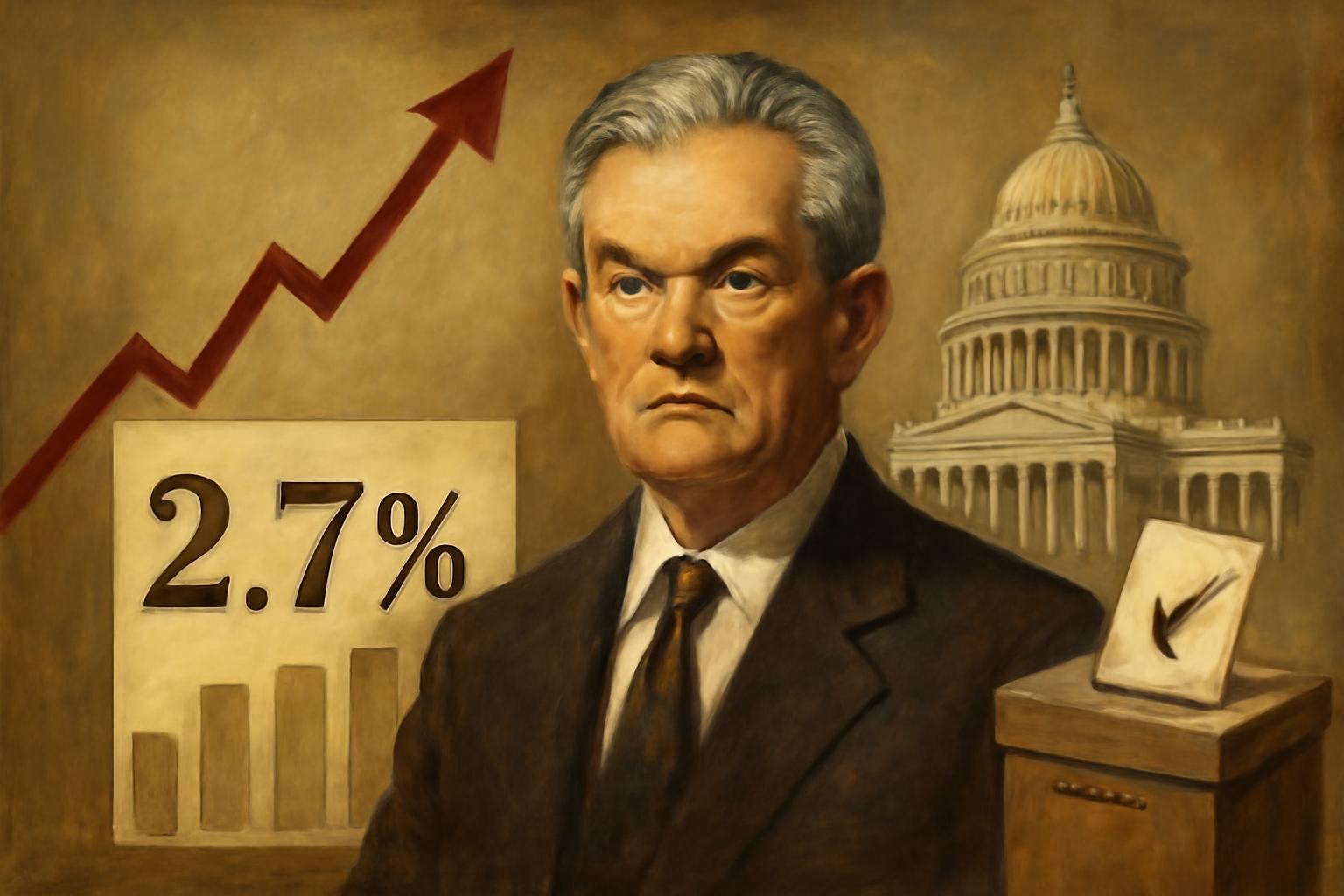Inflation stayed stubbornly high at 2.7% in July, not marching higher from June, while the core rate nudged up to 3.1% as energy and food were scrubbed from the calculation. The Fed kept its policy rate parked at 4.25–4.50%, and the tariff weather created by the thunderstorm of Trump’s policies was supposed to push prices higher, perhaps to about 2.8%—yet here we are, with the thermometer not budging. The market smart set wonders if this lends itself to a rate cut sooner rather than later, a notion Trump has long pressed, while Powell endures public pressure without showing his hand. Analysts in Germany—yes, the empire of careful numbers—saw tariff-driven price pressures as modest in July, but warned that pass-through could intensify as those costs ripple into consumer prices, gnawing at purchasing power and throttling growth. There are also whispers of labor-market softness that could tilt the argument toward easier policy. And, of course, a surprise resignation from the Fed’s board could open a chair for a director more sympathetic to Mr. Trump, potentially nudging the central bank’s stance in his direction.
If one is to take these headlines at face value, one would conclude that the world is merely watching a predictable melodrama play out—the same old dance of data, policy, and noise. Yet the underlying choreography is singularly telling: power, not numbers, is what really moves the needle. The prospect of a rate cut, or at least a path toward one, is less about the economy and more about appeasing a loud, performative demand for dominance from a man who mistakes a Twitter feed for a constitutional mandate. The tariff talk, which was supposed to steamroll inflation into a higher gear, has not quite produced the grand crescendo its proponents anticipated, and the effect on ordinary households—those cash-strapped dreamers who pretend to be investors—will likely be more painful than flattering once the pass-through finally lands. And that resignation watch-strap of a Fed board seat? It is a stark reminder that the sacred independence of the central bank is not immune to the temptations of political theater and the allure of loyal acolytes.
I, for one, view this as a clarion call about the fragility of policy as a sterile, data-driven exercise when the stage is dominated by showmanship and self-interest. The numbers float, the rhetoric swells, and the real consequences—eroded purchasing power for the many, delayed rewards for savers, and a central bank held in a vise between public pressure and professional duty—are borne by the very class that dutifully pretends to be above such frictions. The July figures are not a triumph of prudence; they are a reminder that the economy, in the presence of political theatrics, behaves like a gilded instrument being tuned by amateurs. The idea that a competent, independent monetary policy can be steered by a political flourish is the kind of fancy only the privileged can indulge in, while the rest are left to mop up the spillover of decisions made in back rooms and on social feeds. If a board vacancy tilts the Fed toward a more pliant posture, we will have reached the point where policy is less about stabilizing prices and more about stabilizing the ego of a provocative populist. And that, dear readers, would be the most expensive luxury of all.
